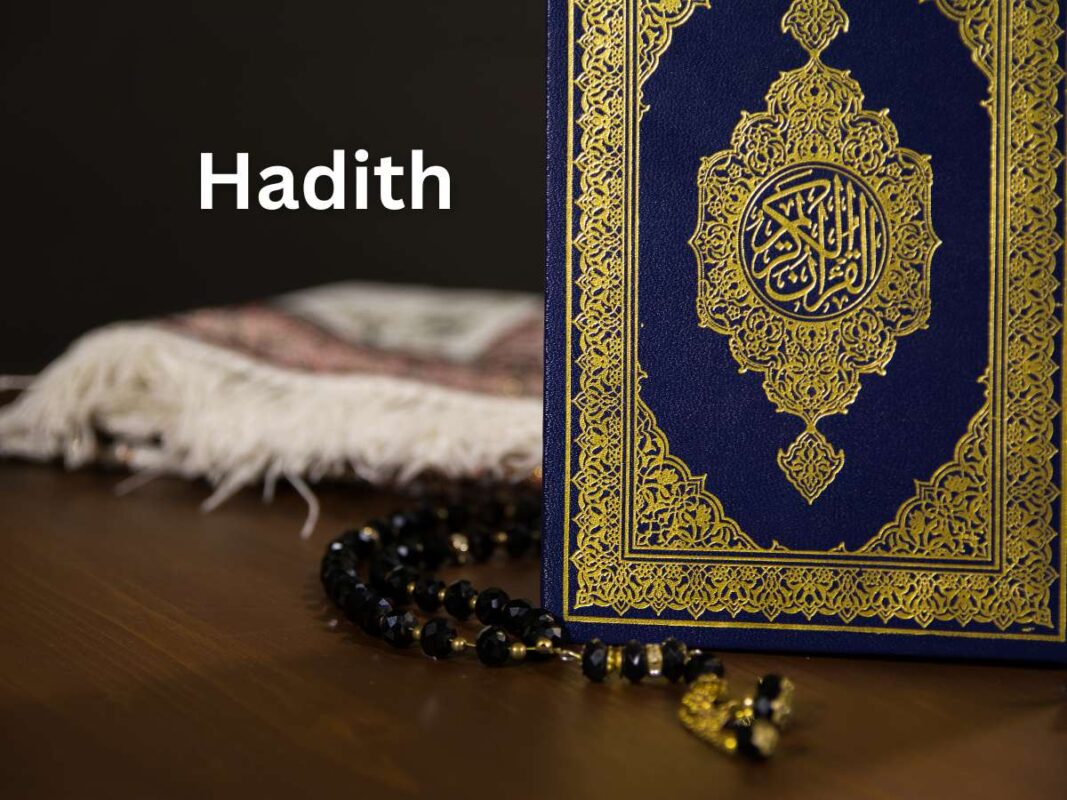Islam
Hadith & Understanding the Prophetic Traditions in Islam
Hadith: Understanding the Prophetic Traditions in Islam
- Hadith, derived from the Arabic word ḥadīth, refers to the sayings, actions, and approvals of Prophet Muhammad.
- Integral to Islamic teachings, Hadith serves as the second primary source of guidance after the Quran.
- The narration and transmission of Hadith hold significant importance in preserving the teachings of Islam.
Origins and Definition of Hadith
- In Arabic, Hadith means “narrative” or “report,” encompassing the traditions and actions of Prophet Muhammad.
- Within Islamic teachings, Hadith complements and elucidates the guidance provided in the Quran.
- Regarded as the second most essential source of Islamic law, Hadith offers practical insights for Muslims in their daily lives.
Types and Classification of Hadith
- Hadith are categorized into various classifications like Sahih, Hasan, and Da’if, based on their authenticity.
- The classification of Hadith plays a vital role in Islamic jurisprudence, guiding legal and ethical principles.
- Authentic Hadith, particularly the Sahih ones, are highly valued for their role in upholding the teachings of Islam.
Compilation of Hadith Literature
- Eminent scholars like Bukhari, Muslim, and Abu Dawood played crucial roles in compiling and preserving Hadith.
- The process of authenticating Hadith involved stringent methodologies and criteria to ensure accuracy.
- The compilation of the Six Authentic Books of Hadith (Al-Sihaah al-Sittah) stands as a cornerstone for studying Prophet Muhammad’s teachings.
Importance of Hadith in Islamic Practice
- Hadith serves as a key source for interpreting and elaborating on the Quranic verses, offering deeper insights into Islamic scriptures.
- Muslims rely on Hadith for practical guidance in matters of worship, ethics, and social conduct.
- Notable Hadith narratives have significantly influenced Islamic beliefs, rituals, and moral values.
Criticism and Controversies Surrounding Hadith
- Certain Hadith have faced challenges to their authenticity, prompting scholarly debates and critiques.
- Historical contexts and political influences have sometimes impacted the transmission and interpretation of Hadith.
- Modern discourses delve into the relevance and varying interpretations of Hadith, reflecting on their applicability in contemporary society.
Hadith in Contemporary Islamic Scholarship
Role of Hadith in Modern Context
- Hadith continues to play a pivotal role in shaping Islamic theology and jurisprudence today.
- Scholars rely on Hadith to understand the Prophet’s teachings and apply them to current issues.
Modern Approaches to Studying Hadith
- Scholars use advanced methods to analyze and authenticate Hadith texts.
- Technology aids in preserving and disseminating Hadith traditions accurately.
Influence on Religious Practices
- The teachings in Hadith guide Muslims in their daily rituals and behaviors.
- Hadith contributes to the formation of societal norms and ethical standards.
Hadith and Women’s Rights
Hadith on Women’s Rights
- Various Hadith narrations emphasize the rights and respect due to women in Islam.
- These teachings highlight the importance of gender equality in Islamic principles.
Clarifying Misconceptions
- Misinterpretations of certain Hadith have led to misconceptions regarding women’s roles in Islam.
- Understanding the context and correct interpretation of these Hadith is essential to promote gender equality.
Famous Hadith Narrations
Significance of Well-Known Hadith
- Selected Hadith narrations hold profound meanings and lessons from Prophet Muhammad.
- These teachings have a lasting impact on Islamic ethics and moral conduct.
Contribution to Islamic Morality
- Hadith serves as a source of inspiration and guidance for Muslims in navigating moral dilemmas.
- The timeless wisdom of these narrations continues to shape individuals’ characters.
Frequently Asked Questions (FAQs) on Hadith:
What is the importance of Hadith in Islam?
Hadith plays a crucial role in explaining the teachings of the Prophet Muhammad and provides practical guidance for Muslims in various aspects of life.
How is Hadith classified in Islamic tradition?
Hadith are categorized into different classifications such as Sahih (authentic), Hasan (good), Da’if (weak), etc., based on their authenticity and reliability.
Who were the major compilers of Hadith literature?
Scholars like Imam Bukhari, Imam Muslim, and Abu Dawood, among others, played key roles in compiling and authenticating Hadith collections.
What is the process of authenticating Hadith?
Scholars use rigorous methodologies and criteria to assess the chain of narrators and content of Hadith to determine their authenticity.
How do Hadith impact Islamic jurisprudence?
Hadith serves as a secondary source of law after the Quran, providing detailed explanations and interpretations of religious practices.
Are there controversies surrounding certain Hadith narrations?
Yes, some Hadith face criticism due to historical contexts, political influences, and debates on their relevance and interpretation in modern times.
What role does Hadith play in shaping contemporary Islamic scholarship?
Hadith continues to influence Islamic theology, jurisprudence, and societal norms, with modern approaches focusing on critical analysis and interpretation.
Conclusion:
In conclusion, the Hadith literature holds immense significance in Islam, serving as a source of guidance, wisdom, and ethical principles for Muslims worldwide. By understanding the origins, classifications, and compilation of Hadith, one can appreciate the rich tradition of Prophetic teachings and their enduring relevance in modern society. It is essential to engage in scholarly studies, authenticating processes, and interpretations of Hadith to deepen one’s understanding of Islam and to uphold the legacy of Prophet Muhammad’s teachings for spiritual growth and moral development.


